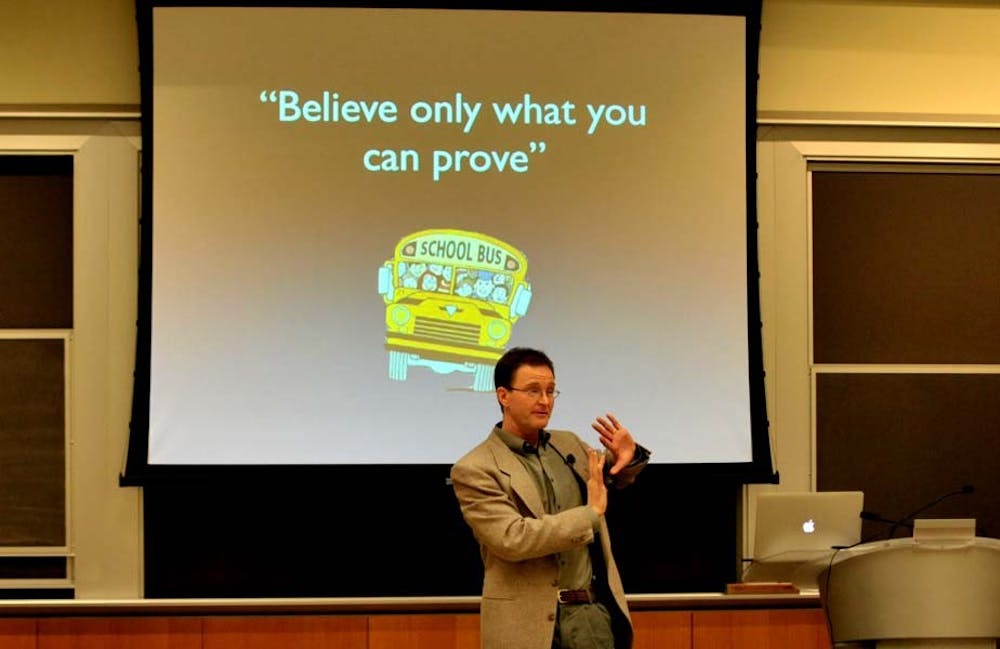For many, trying to find a balance between faith and proof can become a difficult tightrope act.
In conjunction with the University’s “Year of Proof,” Penn Secular Society brought Carnegie Mellon University philosophy professor Andy Norman to speak Wednesday afternoon in a lecture titled “Faith, Proof and Everything in Between.”
One question prevailed during Norman’s talk: What is the balance between faith and proof? In answering this question, he dispelled two common ideas.
“One of them is that you should only believe what you can prove,” he said. “I think it’s also wrong to say that we’re permitted to believe anything we have faith in.”
To show that a balance was necessary, Norman gave examples of extreme cases on both sides, explaining that rigorous proof was necessary in fields such as mathematics and logic, while “faith talk” could creative positive change.
College senior and Penn Secular Society Vice President Matthew Ricci did not think that a balance existed prior to Norman’s talk.
“Proof, whatever that means, is based on accumulation of evidence, while faith, as far as I know, is defined as belief without evidence,” he said.
Norman also dismissed relying too complacently on faith when proof is difficult to come by — a sentiment that was met with opposition among some audience members.
Related
11/16/2012 Your Voice | Finding the right proof
11/16/2012 Professors lay a blueprint for the use of proof in architecture
“I can prove many arguments with the Word, which I believe is the truth,” College sophomore Daniela Mendez, a Christian, said. “My proof is not someone else’s proof.”
During his talk, Norman emphasized the need for “responsible believing.” He said that beliefs are subject to morality, just as behaviors are.
“Beliefs can trigger action, beliefs often have consequences and those behaviors can often have an impact on the well-being of others,” he said. “It is the business of morality to make sure we don’t do things to hurt other people.”
He also noted that constructive dialogue between people of different ideologies is important. This is a leading principle of Penn Secular Society.
According to College sophomore and Penn Secular Society President Seth Koren, the organization focuses on “fostering a sprit of rational thought and asking questions.”
While College senior Franco Nilo, also a Christian, agreed with Norman’s position, he found himself in contention with the speaker as the talk continued.
“As he advanced his arguments, I continued to get the sense that we should develop the ability to censor certain beliefs and to convince people otherwise,” he said. “His final conclusion … really left me confused as to how his talk advanced the ability for this interfaith dialogue to begin.”
Related
11/16/2012 Your Voice | Finding the right proof
11/16/2012 Professors lay a blueprint for the use of proof in architecture



